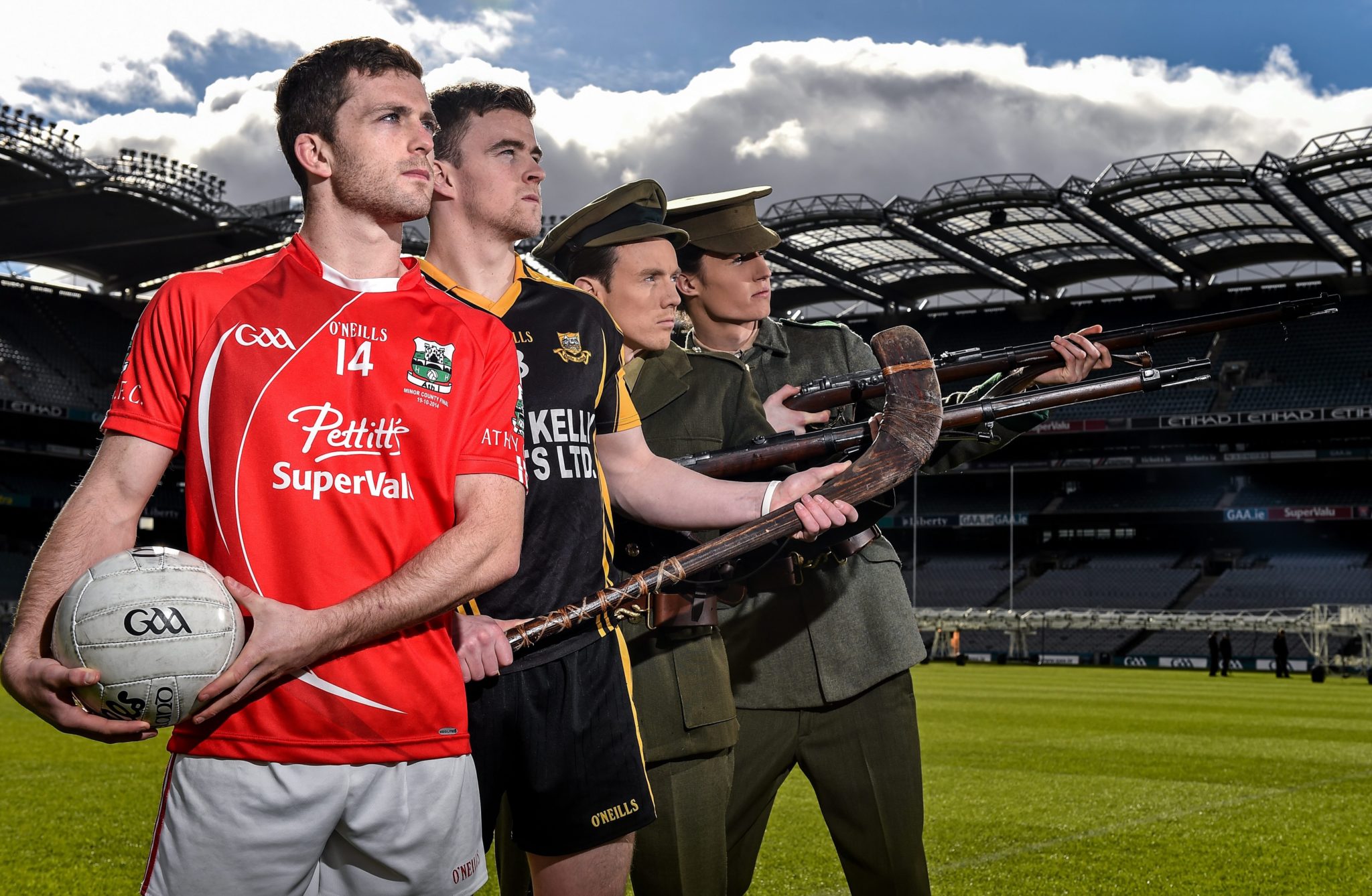As Paul Rouse continued his History of Sport series on Tuesday's Off The Ball, the eminent historian revisited the GAA's controversial attempts at rewriting its own role and that of its members in World War One and the 1916 Easter Rising.
On another week where Off The Ball was joined by UCD Professor of History Paul Rouse, the inescapable mingling of sport and war framed the discussion. As is so often the case, it was demonstrated that much of what we may take for granted is incorrect; or incomplete, as the case may be.
"It was for many years conveniently forgotten from Irish history the extent to which people joined the British army," explained Rouse of Irish involvement in the Great War (1914-18). "Despite any rhetoric against enlistment, it is a simple fact that all across Irish society there was huge enlistment."
For a variety of reasons ranging from economic need to a sense of adventure, the GAA, despite what it may have subsequently claimed, provided a significant share of people who would fight, and in certain instances tragically die, in a British army uniform.
"In the years after Irish independence the GAA constructed a story around itself," he outlined. "[It would have you believe] that none of its members had fought in the Great War and that it had staffed the 1916 Easter Rising almost single-handed. It was a nonsense."
 10 March 2016; The GAA calls on members of all its clubs and members of the public to join them in Croke Park, on Sunday April 24, for the Association's national Commemorative Event for the 1916 Easter Rising. Picture credit: Cody Glenn / SPORTSFILE
10 March 2016; The GAA calls on members of all its clubs and members of the public to join them in Croke Park, on Sunday April 24, for the Association's national Commemorative Event for the 1916 Easter Rising. Picture credit: Cody Glenn / SPORTSFILEThroughout World War One, the GAA decided to continue with their games. As time went on, a portion of their players were found to be no longer available, however.
"James Rossiter was a brilliant forward who was instrumental in Wexford winning Leinster championships in 1913 and 1914," noted Rouse. "While they were narrowly beaten by Kerry in an All-Ireland final, it was clear that Wexford were the coming team.
"When they came back in 1915 and blazed through Leinster to win the All-Ireland final, Rossiter was no longer on the team. In fact, Rossiter was no longer alive. Ten days before that All-Ireland final of 1915, he died by injuries sustained while fighting for the British army in France.
"His story was the cause of an enormous outpouring of grief. These are the tangles and nuances of history that decry those later attempts by propagandists to construct a nationalistic fairy-tale around the GAA's involvement in World War One."
"History demands a complexity and flexibility around these things," he suggested. Yet, as the GAA demonstrated between their immediate approach to 1916 Easter Rising and that which was adopted in the years that followed, it was historical fact itself that came to be regarded as changeable.
*****
"The rhetoricians within the GAA would long have presented a picture whereby 1916 couldn't have happened without the GAA," presented Rouse. "Again, it just doesn't hold water."
Although the association was certainly tied up with the 1916 Easter Rising through the involvement of certain central figures, in comparison to the horrific events occurring on the battlefields of Europe at the time, their retrospective view on this period was troubling.
"If you take that there were between 1,500 and 1,800 rebels on Easter week," explained Rouse, "about one fifth of them had a connection with the GAA. There were in fact more GAA men fighting in the Battle of the Somme than at the GPO."
Nevertheless, thanks in part to Sir Matthew Nathan, a key British representative in Ireland who publicly declared the GAA to have been of central importance to the Rising, the association would later find means of telling a different story and glossing over the "inconvenient truth" Rouse alluded to.
"When they actually heard Sir Matthew Nathan's statement implicating the GAA in the Rising," he pointed out, "the GAA issued a statement immediately where they not only said that the statement was not only untrue, but also unjust. It utterly rejected the notion that it was involved in the Rising.
"If you look at what happens throughout the rest of 1916 then, the GAA actually sent a delegation to the House of Commons to meet the English revenue commissioners to ask that they be refused from paying [a new] tax on entertainment.
"They even entered into a dialogue with General Sir John Maxwell. He was the officer of the British army who was brought into Dublin to suppress the Rising of 1916. It was Maxwell who oversaw and drove the execution of 15 rebels and the internment of almost 3,000 people in the weeks and months after the Rising.
"I mean, if the GAA were so at one with the rebels of 1916, how could they meet with their executioner afterwards?"
Like great swathes of Irish society in the years that followed, the GAA would be radicalised in the fight for Irish freedom ahead of the War of Independence a few years later.
You can listen back to UCD Professor of History Paul Rouse in full on Off The Ball from 7:00 pm tonight. Alternatively, this latest History of Sport episode will be available as a podcast or indeed as a video on OTB's YouTube channel later this evening.
Download the brand new GoLoud App in the Play Store & App Store right now! We've got you covered!
Subscribe to OffTheBall's YouTube channel for more videos, like us on Facebook or follow us on Twitter for the latest sporting news and content.








